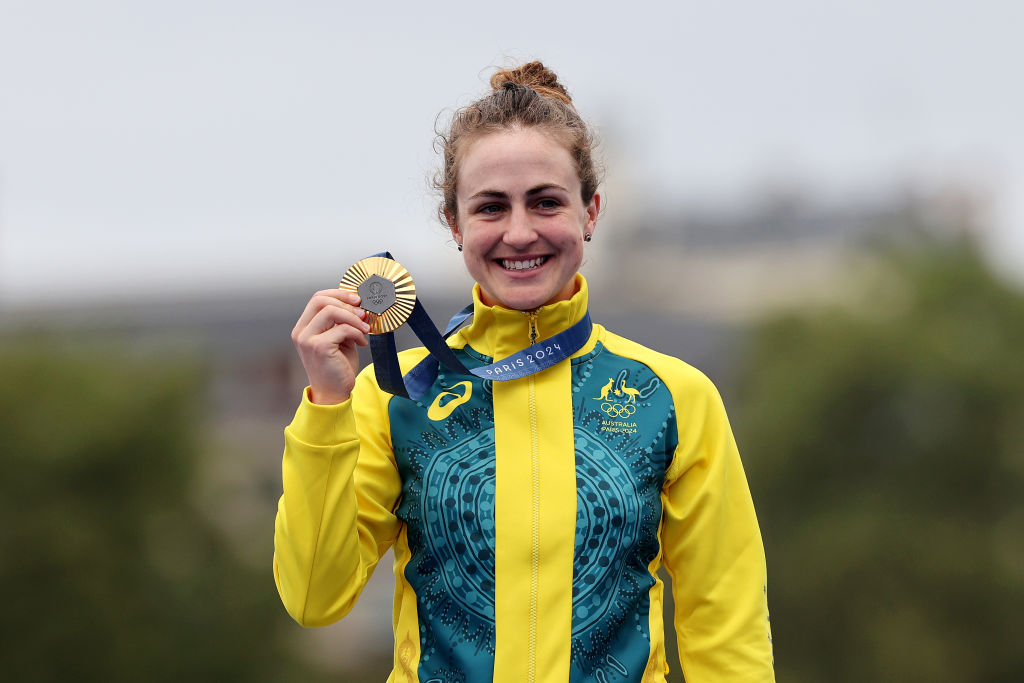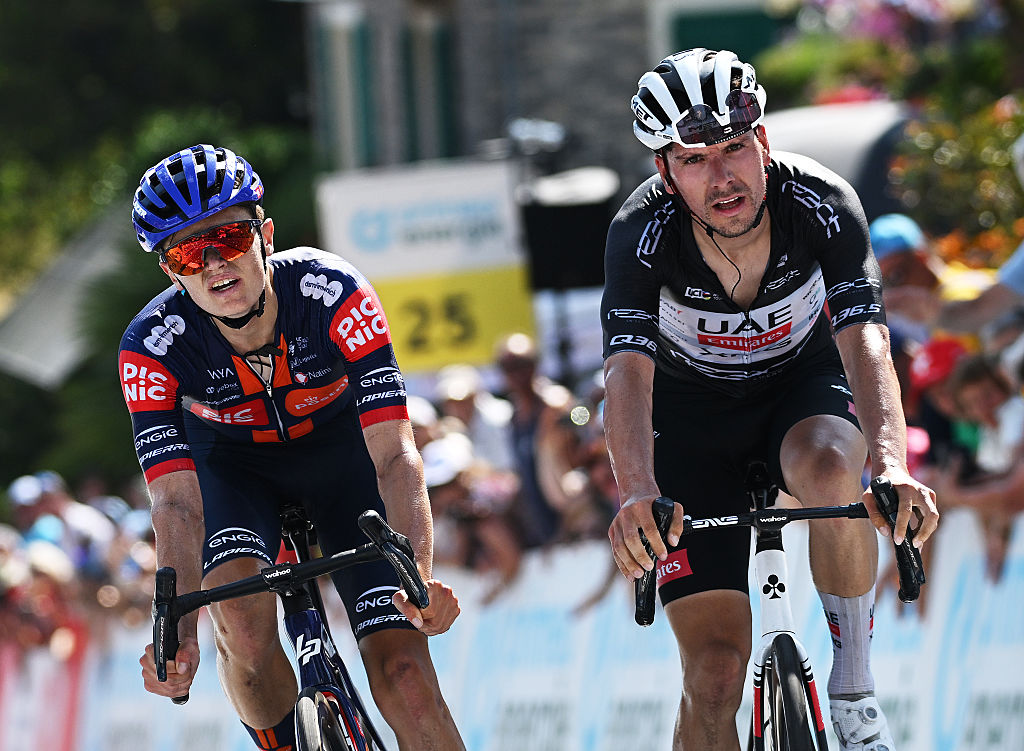'We can't sit here and say all the problems are from outside' – Cyclist Alliance's Grace Brown spearheads unity campaign at a Tour de France Femmes where debate over rider respect is bubbling
'We're not afraid of saying that the riders have a part to play in making the racing more safe' said Brown while also pointing to the shared responsibility

The latest race content, interviews, features, reviews and expert buying guides, direct to your inbox!
You are now subscribed
Your newsletter sign-up was successful
The timing for the Cyclists Alliance purple ribbon unity campaign, which is aimed at promoting solidarity within the women's peloton, seems apt, given the divisive controversy that has bubbled away in the background of a charged edition of the Tour de France Femmes avec Zwift.
The topic of mutual respect between riders and teams, and the safety ramifications that come into play when it is lacking, rose to the surface at this year's race after Demi Vollering's (FDJ-Suez) stage 3 crash and has caused some public back and forth among some of the team's sports directors.
While the spirit of coming together within the peloton, of course, has broader ramifications than just one issue, but safety is certainly one on the list that is impossible to ignore.
"As representatives of the riders we can't sit here and say all the problems are from outside," Cyclists' Alliance President Grace Brown told Cyclingnews in Clermont-Ferrand, before the start of stage 6. "We can't say that it's just the race organisers, the UCI and other people that are making the races dangerous; the riders also have a responsibility to respect each other and ride within their limits and be safe.
"Of course, it's racing, and there are going to be times where riders take risks, but it has to be with respect for other people's lives and careers. So it's a tricky topic, though, we're not afraid of saying that the riders have a part to play in making the racing more safe."
The culture has changed, and while hierarchies that once existed are not always a good thing, said Brown, the presence of senior riders that would guide what is and isn't appropriate behaviour could be.
But there is also more to it than that, as while the development of the women's peloton and increasing competitive tension has had many benefits, there have also been some negative side effects as teams ask of things from their riders that can feed into the chaotic outcomes.
The latest race content, interviews, features, reviews and expert buying guides, direct to your inbox!
"Every rider is being put under pressure to be at the front, you know, to be first wheel at this point in the race and it's like 'you do this or you're in trouble'. Then the riders are under stress, and they probably take risks that they otherwise wouldn't, because they don't want to let down their team," said Brown. "Everyone has to come together and agree to change the way the behaviour is going."
As Brown pointed out, the sense of unity to work together in the interests of riders needs to go beyond the show of solidarity that the Cyclists Alliance are currently encouraging within the peloton to help deliver a visual display of the collective voice, with riders wearing the purple ribbons on their wrist, hair and helmets of putting them on the bike.
The Cyclists Alliance, too, is practising what it preaches.
"We're building our relationship with the CPA so that we can work together," said Brown of its fellow association of professional cyclists. "Because in the end, we both want the same thing. I think the CPA is more focused on the safety aspects and the Cyclists Alliance is a little bit more focused on equality, fair working conditions, those sorts of topics. But together we can cover more bases."
There are certainly plenty of issues that the alliance want to address for the women's peloton, from minimum salaries spreading beyond the top tier and maternity leave stretching beyond the WorldTour to a universal and standardised approach to race safety and the controversial handlebar regulations the UCI is implementing – which Brown points to as an example of how women have been overlooked and not sufficiently consulted.
Still, if she had the power to change just one thing with a click of her fingers, Brown knows what it would be.
"For me, one of the most important things is the fact that the Continental level of racing is really being left behind with the rapid growth at the WorldTour level," said the Olympic gold medalist and world time trial champion.
A new ProTeam category has been introduced in 2025, with minimum wages and UCI regulation, but the Continental teams which often race alongside WorldTour teams in the biggest of WorldTour races, still function outside that system, being regulated by national federations.
"The standards there are really not acceptable," said the Olympic gold medalist and world time trial champion. "It's not regulated properly by the UCI."
"So, if I could change anything, I'd just like change the structure of that so that there were proper standards for the Continental level of racing and a minimum salary there as well."

Simone is a degree-qualified journalist that has accumulated decades of wide-ranging experience while working across a variety of leading media organisations. She joined Cyclingnews as a Production Editor at the start of the 2021 season and has now moved into the role of Australia Editor. Previously she worked as a freelance writer, Australian Editor at Ella CyclingTips and as a correspondent for Reuters and Bloomberg. Cycling was initially purely a leisure pursuit for Simone, who started out as a business journalist, but in 2015 her career focus also shifted to the sport.
You must confirm your public display name before commenting
Please logout and then login again, you will then be prompted to enter your display name.
